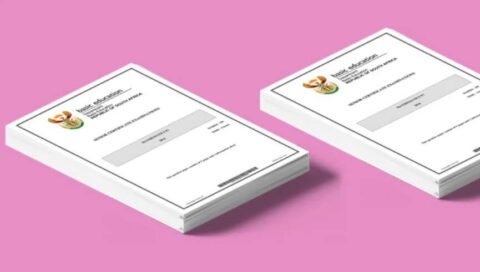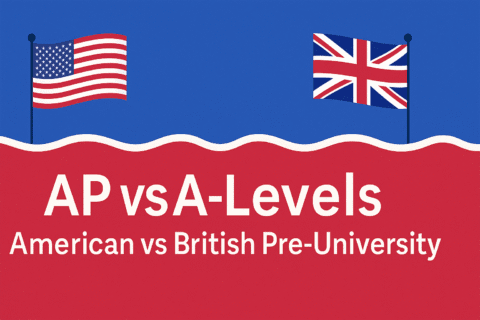🚀 Introduction: So, You’re Taking the AP Route Solo?
You’re not alone—ironically. Each year, thousands of students worldwide tackle Advanced Placement (AP) exams without a formal classroom. Whether you’re homeschooled, attending a school that doesn’t offer AP classes, or just hungry for more academic challenge, self-studying for AP exams is 100% doable—and insanely rewarding.
In this guide, I’ll walk you through everything I’ve learned (from both my students and personal experience) about how to prepare for AP exams on your own—with smart strategies, real tools, and a mindset that keeps you going.
📚 Why Self-Study for AP Exams?
Flexibility: Study at your pace, your style, your schedule.
Cost-Efficient: No tuition or pricey classes needed.
College Credit: Score well, and you could skip college gen-eds.
Academic Exploration: You’re not limited by your school’s course catalog.
“Self-study gave me the freedom to pick up AP Psychology even though my school didn’t offer it. I ended up scoring a 5.” —Zara A., Dubai
🛠️ What You’ll Need to Get Started
✅ A Clear Goal:
Decide which AP exam(s) you want to take and why. Research credit policies at your target universities.
✅ A Study Timeline:
6 months ahead: Content review
3 months ahead: Practice tests
1 month ahead: Intensive review & weak spots
✅ Reliable Study Resources:
| Resource Type | Recommendation |
|---|---|
| Official Course Guide | AP Central (College Board) |
| Textbook | Princeton Review / Barron’s |
| Practice Tests | College Board / Albert.io / CrackAP |
| Video Lessons | Khan Academy / HeLovesMath YouTube |
| Flashcards | Quizlet / Anki |
🧠 How to Structure Your Study Plan
Step 1: Understand the Curriculum Framework
The College Board provides a detailed breakdown of each unit. Print this and turn it into your master checklist.
Step 2: Daily & Weekly Study Schedule
Monday–Friday: 1 topic per day + mini quiz
Saturday: Recap + light review
Sunday: Practice questions or rest
Pro Tip: Use Google Calendar or Notion to stay accountable. Visually tracking progress helps!
Step 3: Layered Learning
Read Textbook →
Watch Videos →
Take Notes / Make Flashcards →
Quiz Yourself →
Apply via FRQs / Practice Exams
📈 How to Track Your Progress
Benchmark Yourself:
Take a full-length diagnostic test early on and again every 4–6 weeks.
Use a Score Tracker:
Make a spreadsheet that logs:
Practice test scores
Multiple-choice accuracy by unit
FRQ feedback
💬 How to Master Free-Response Questions (FRQs)
Study the scoring guidelines (found on AP Central)
Practice writing under timed conditions
Use real rubrics to self-score
Learn to bullet your responses for clarity
“The best FRQ hack? Write like you’re explaining the concept to your 10-year-old cousin. Keep it clear and specific.” —Mr. Daniels, AP Teacher
🤯 Common Pitfalls (And How to Avoid Them)
❌ Over-studying without practice: Don’t just consume—produce!
❌ Cramming last-minute: AP content is deep, not just wide.
❌ Ignoring the exam format: Knowing the structure = 20% of the win.
❌ Burnout: Plan breaks and non-academic days.
🌍 Special Tips for International Students
Register early through an authorized testing center.
Account for time zone differences if doing online prep.
Don’t rely solely on U.S.-based examples—relate topics to your region.
🔄 Can You Self-Study for All AP Exams?
Not all AP exams are equal. Here’s a breakdown:
| Easy to Self-Study | Medium-Difficulty | Tough to Self-Study |
|---|---|---|
| AP Psychology | AP Biology | AP Studio Art |
| AP Environmental Sci | AP US History | AP Music Theory |
| AP Human Geography | AP Calculus AB/BC | AP Seminar & Research |
| AP Computer Sci. Principles | AP Chemistry | AP Physics C (Mech & E&M) |
🧩 Bonus Tools & Platforms You’ll Love
HeLovesMath.com – Free video lessons, quizzes, and cheat sheets
AP Classroom – College Board’s official platform
Reddit r/APStudents – Real peer insights
Study With Me YouTube Channels – For motivation and focus
✅ Summary: Yes, You Can Crush the APs Alone
Self-prepping for an AP exam isn’t just possible—it can actually be empowering. With the right mix of resources, planning, and grit, you can walk into test day confident and ready.
Remember: you’re not skipping the classroom—you’re building your own.
🙋♂️ FAQs – People Also Ask
Q: Can I take AP exams without taking an AP class? Yes! You can register as an independent student through an AP coordinator or testing center.
Q: How many hours should I study for an AP exam? Aim for 100–150 hours over several months for thorough prep.
Q: Is self-studying AP worth it? If you’re motivated and strategic, absolutely. It can save you college tuition and boost applications.
Q: What are the easiest AP exams to self-study? Psychology, Environmental Science, and Human Geography are among the easiest due to their accessible content.
Q: Where can I find past AP exam questions? AP Central by the College Board offers official past FRQs and sample scoring guides.


